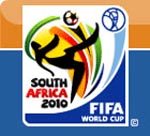
Top stories






More news


Marketing & Media
Ads are coming to AI. Does that really have to be such a bad thing?















Senior Superintendent Vishnu Naidoo, national police spokesperson, told Bizcommunity.com yesterday, 11 January 2010: “The security situation in Angola is limited to Angola and has no impact whatsoever in SA, Ghana, Ivory Coast or any other country.
“We remain confident about our 2010 World Cup security plans and we are not reviewing them unless our intelligence data dictates otherwise.
“SA and Angola are two different countries. Angola is war-torn country and SA is not,” he pointed out.
Togo goalkeeper Kodjovi Obilale is in critical condition in Milpark Hospital in Johannesburg, and the team assistant coach and a spokesperson were killed after hooded gunmen launched a daring attack on the bus transporting the national team.
A separatist group, Front for the Liberation of the Enclave of Cabinda (FLEC), claimed responsibility for the attack and warned of more violence to come, according to Portugal's state-controlled news agency Lusa.
The incident has sent shockwaves throughout the world soccer fraternity, especially in Europe, where negative sentiments towards Africa have soared since the very first day Africa - as the theatre and SA as a stage - was chosen to host the 2010 World Cup.
British newspaper The Telegraph quoted Hull City manager Phil Brown as saying: "I am appalled. This throws a question mark against next summer's World Cup.
"You simply cannot put the safety of players, officials and fans at the slightest risk. That is totally unacceptable.
"I have two players - Daniel Cousin and Seyi Olofinjana - on duty and I want them back home here with us as quickly as possible."
While some observers say the Angolan incident should serve as a wake-up call to the World Cup's organisers, others however believe Brown's ‘overreacting' statement smells of Afro-pessimism and constitutes an insult to South Africans and the African people as a whole.
European Afro-pessimists, who constantly speculate of a FIFA's so-called ‘2010 Plan B', still believe the ‘dark continent' is not ready in all levels to host the world's biggest soccer event.
The South African Police Service remains upbeat about the World Cup's security success, however.
Naidoo said: “Those who doubt our ability to host an incident-free and secure World Cup should refer to the 2009 FIFA Confederations Cup, where over 600 000 people enjoyed the competition without any security glitch.”
Many in the West believe SA is one of the world's most dangerous places. Reports said close to 50 people are killed every day in SA from criminal incidents ranging from hijacking to housebreaking, cash heist, domestic violence and business robberies.
SA authorities said 41 000 police officers will be on duty during the World Cup and the army could be called in to boost security.
FLEC, who the Angolan government claimed was disbanded, has been fighting for Cabinda's independence for the past three decades.
Cabinda, home to the Woyo tribes and physically separated from Angola, boasts more than 50% of Angola's oil reserves mostly exploited by US company Chevron, but, close to 90% of Cabinda's populations live in extreme poverty without electricity, clean water, basic healthcare, and adequate sanitation.
Angola, Africa's biggest oil producer and a member of OPEC, is still plagued by tribalism, nepotism and corruption.
The 2010 Orange Africa Cup of Nations' opening ceremony and Angola-Mali game took place last night without any incident.
